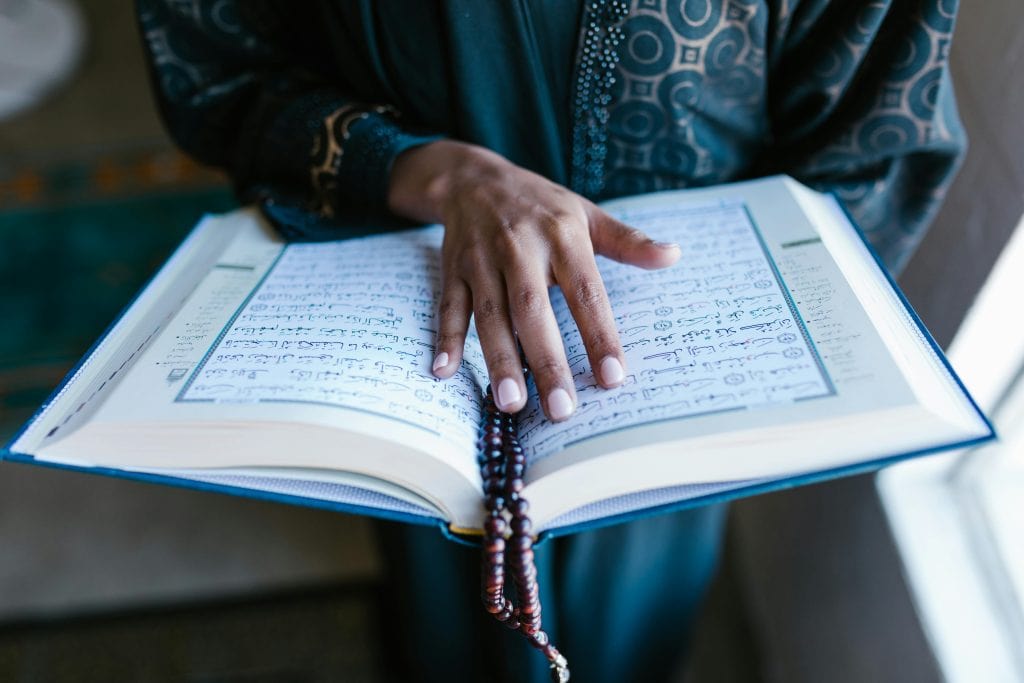Short Answer:
No — salah (prayer) does ultimately need to be in Arabic, but if you’re still learning, it’s permissible to temporarily recite simpler Arabic phrases (like dhikr) until you memorize the required parts. You should not delay your prayer while waiting to master them.
💡 Dua, or general supplication and prayers to Allah, can be done in your native language at any time. It is only the formal salah, primarily the five daily prayers, that must be in Arabic.
A Closer Look
Understanding What’s Required
- Salah must include specific Arabic recitations taught by the Prophet (PBUH) — most fundamentally, Al-Fatihah and certain phrases during ruku (bowing) and sujud (prostrating).
- This maintains unity in worship across the Muslim community and ensures the Prophet’s exact words are preserved.
- Scholars agree: while the obligation remains Arabic, beginners are encouraged to learn gradually without abandoning salah.1
Praying While You’re Learning
- Do not delay salah. Begin with whatever you know, reciting as best as you can.2 Allah does not burden a soul beyond its capacity.
- If you haven’t memorized Al-Fatihah, scholars advise reciting short Arabic dhikr phrases temporarily like “SubhanAllah, Alhamdulillah, Allahu akbar” until you do.3
- Once you learn Al-Fatihah, practice replacing the placeholder phrases with it.
- Dedicate time every day to learning, even just 20 minutes — many reverts can memorize Al-Fatihah within a few days or a week of practice!
There’s a helpful resource on this step-by-step approach: check out “Learning Al-Fatihah” on our site, which guides you through memorization for beginners.
💡 Remember: delaying prayer until you’ve mastered Arabic isn’t allowed. Start with what you can, and grow step by step.
Scholarly Support
- Hadith: When a man prayed badly/incorrectly, the Prophet (PBUH) instructed him in the proper way to perform salah, including the required recitations (reported in Bukhari4 and Muslim5). From this and other narrations, scholars understood that the prescribed words of salah are to be learned and recited as revealed — in Arabic.
- Hadith: In a separate instance, a man said he could not memorize anything from the Quran, so the Prophet (PBUH) taught him praises and glorifications of God (dhikr) to use as a substitute (reported in Abi Dawud6).
- Dr. Shabir Ally suggests new Muslims work up to the Arabic recitation by first starting with one’s native language and translation before eventually learning the Arabic.7
- Shaykh Abdullah Hasan affirms that while new Muslims “should exert all efforts and endeavor to learn” the required Arabic for salah, reciting dhikr or reading a translation is a permissible temporary solution.8
On the topic of praying in Arabic and learning Al-Fatihah, here is a helpful talk by Mufti Menk:
- Why do we HAVE to pray in Arabic?
Speaker: Mufti Ismail ibn Musa Menk
Practical Tips for Learning Arabic in Salah
- Start with daily micro-goals — memorize just one phrase at a time.
- Use transliteration and audio tools to help with pronunciation.
- Practice with a teacher or in a learning group.
- Combine memorization with understanding as it helps retention.
Key Takeaways
🎯 Salah must ultimately be in Arabic — but while you’re learning, you should still pray using what you know.
🌱 Begin with simple phrases, and gradually incorporate Al-Fatihah and other required parts.
💡 Use our “Learning Al-Fatihah” guide as a friendly roadmap, then try learning some other short surahs and common duas!
🎓 Check out our curated list of Arabic learning resources.
Comments
Have you memorized Al-Fatihah? What helped you stick with it? Or are you still in the process? Share your progress or tips below — gentle encouragement and community support welcomed!
References
- Dar al-Ifta (Egypt), “I am a new Muslim and unable to recite Fatiha chapter during prayers. What should I do?,” Dar-AlIfta.org, Fatwa #8030, 2015, https://www.dar-alifta.org/en/fatwa/details/8030/i-am-a-new-muslim-and-unable-to-recite-fatiha-chapter-during-prayers-what-should. ↩︎
- Muhammad al-Munajjid, “What to Do If You Cannot Read Al-Fatihah in Prayer,” IslamQA.info, Question: 5410, 2002, https://islamqa.info/en/answers/5410/what-to-do-if-you-cannot-read-al-fatihah-in-prayer. ↩︎
- Muhammad Salah, “I can’t speak Arabic can I pray in English,” Huda TV, YouTube video, 2020, https://youtu.be/YDlfbtYjrcI. ↩︎
- Muhammad al-Bukhari, Sahih al-Bukhari, Hadith 757, https://sunnah.com/bukhari:757. ↩︎
- Muslim ibn al-Hajjaj, Sahih Muslim, Hadith 397a, https://sunnah.com/muslim:397a. ↩︎
- Abu Dawood, Sunan Abi Dawud, Hadith 832, https://sunnah.com/abudawud:832. ↩︎
- Shabir Ally, “Q&A: Prayer in English,” Let the Quran Speak, YouTube video, 2014, https://youtu.be/SVEKsau0pRE. ↩︎
- Abdullah Hasan, “Why is Salah Not Allowed Except In Arabic?,” MuslimMatters.org, 2017, https://muslimmatters.org/2017/03/29/why-is-salah-not-allowed-except-in-arabic/. ↩︎

